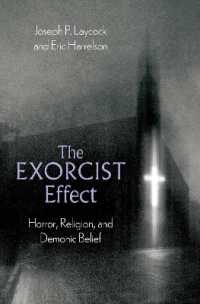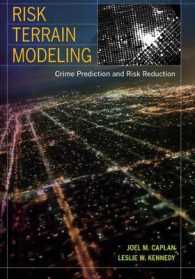Description
Co-published with Colleges and universities are increasingly becoming significant sites for adult education scholarship—in large part due to demographic shifts. With fewer U.S. high school graduates on the horizon, higher education institutions will need to attract “non-traditional” (i.e., older) adult learners to remain viable, both financially and politically. There is a need to develop a better corpus of scholarship on topics as diverse as, what learning theories are useful for understanding adult learning? How are higher education institutions changing in response to the surge of adult students? What academic programs are providing better learning and employment outcomes for adults in college? Adult education scholars can offer much to the policy debates taking place in higher education. A main premise of this handbook is that adult and continuing education should not simply respond to rapidly changing social, economic, technological, and political environments across the globe, but should lead the way in preparing adults to become informed, globally-connected, critical citizens who are knowledgeable, skilled, and open and adaptive to change and uncertainty.The Handbook of Adult and Continuing Education provides rich information on the contemporary issues and trends that are of concern to adult and continuing education, of the programs and resources available to adult learners, and of opportunities to challenge and critique the structures embedded in the field that perpetuate inequity and social injustice. Adult education is a discipline that foresees a better tomorrow, and The Handbook is designed to engage and inspire readers to assist the field to seek new paths in uncertain and complex times, ask questions, and to help the field flourish.The Handbook is divided into five sections. The first, Foundations situates the field by describing the developments, core debates, perspectives, and key principles that form the basis of the field.The second, Understanding Adult Learning, includes chapters on adult learning, adult development, motivation, access, participation, and support of adult learners, and mentoring.Teaching Practices and Administrative Leadership, the third section, offers chapters on organization and administration, program planning, assessment and evaluation, teaching perspectives, andragogy and pedagogy, public pedagogy, and digital technologies for teaching and learning.The fourth section is Formal and Informal Learning Contexts. Chapters cover adult basic, GED, and literacy education, English-as-a-Second Language Programs, family literacy, prison education, workforce development, military education, international development education, health professions education, continuing professional education, higher education, human resource development and workplace learning, union and labor education, religious and spiritual education, cultural institutions, environmental education, social and political movements, and peace and conflict education.The concluding Contemporary Issues section discusses decolonizing adult and continuing education, adult education and welfare, teaching social activism, lesbian, gay, bisexual, trans, queer and straight allies, gender and its multiple forms, disability, older adults and intergenerational identities, race and ethnicity, working class, whiteness and privilege, and migrants and migrant education.The editors culminate with consideration of next steps for adult and continuing education and priorities for the future.
Table of Contents
Introduction. Advancing Adult and Continuing Education Through Critical Conversations and Diverse Perspectives—Robert C. Mizzi, Tonette S. Rocco, M Cecil Smith, Lisa R. Merriweather, and Joshua D. Hawley Part One. Foundations 1. Philosophical Foundations of Adult and Continuing Education—Leodis Scott, Robert C. Mizzi and Lisa R. Merriweather2. History of Adult and Continuing Education—Amy D. Rose 3. Interdisciplinarity in Adult and Continuing Education—Royce Ann Collins 4. Public Policy and Adult and Continuing Education—Elizabeth A. Roumell and Larry G. Martin 5. Lifelong Learning—Marcie Boucouvalas 6. Internationalization of Adult and Continuing Education—Mary V. Alfred and Shibao Guo Part Two. Understanding Adult Learning 7. Adult Learning—Colleen Kawalilak and Janet Groen 8. Adult Development—Thomas G. Reio Jr. 9. Motivation—Margery B. Ginsberg and Raymond J. Wlodkowski 10. Access, Participation, and Support of Adult Learners—David Deggs and Ellen Boeren 11. Mentoring in Adult and Continuing Education—Geleana D. Alston and Catherine A. Hansman Part Three. Teaching Practices and Administrative Leadership 12. Organization and Administration of Adult and Continuing Education Programs—Susan M. Yelich Biniecki and Steven W. Schmidt 13. Program Planning in an Era of “Wicked Problems”—Thomas J. Sork 14. Assessment and Evaluation in Adult and Continuing Education—Lilian H. Hill 15. Teaching Perspectives—Stephen D. Brookfield 16. Pedagogy and Andragogy. Intersection for Learning—Jerry Bowling and John A. Henschke 17. Adult Learning Through Everyday Engagement With Popular Culture—Kaela Jubas, Jennifer A. Sandlin, Robin Redmon Wright, and Jake Burdick 18. Digital Technologies for Teaching and Learning—Elisabeth E. Bennett and Rochell R. McWhorter Part Four. Formal and Informal Learning Contexts 19. The Cost of a Dollars and Cents Rationale for Adult Basic Education Policy—Alisa Belzer and Jeounghee Kim 20. English as a Second Language—Christy Rhodes and Clea A. Schmidt 21. Family Literacy—Esther Prins, Carol Clymer, Anna Kaiper-Marquez, and Blair Willson Toso 22. Prison Education—Dominique T. Chlup 23. Workforce Development. Past, Present, and Future—Ellen Scully-Russ and Ximena Vidal De Col 24. Military Education. Evolution and Future Directions—Sarah Cote Hampson and Nancy Taber 25. International Development Education—Jill Zarestky, Maren Elfert, and Daniel Schugurensky 26. Health Professions Education and Adult and Continuing Education. Working Collaboratively to Foster Educator Development—Barbara J. Daley and Ronald M. Cervero 27. Continuing Professional Education—Maureen Coady 28. Adult Learners In Higher Education—Matt Bergman 29. Human Resource Development and Workplace Learning—Henriette Lundgren and Rob F. Poell 30. Labor Education Programs. Radical Beginnings, McCarthyist Backlash, and the Rise of Neoliberal Education—Corey Dolgon and Reuben Roth 31. Adult Education for Human Florishing. A Religious and Spiritual Framework—Davin Carr-Chellman, Michael Kroth, and Carol Rogers-Shaw 32. Cultural Institutions—Robin S. Grenier 33. Adult Environmental Education—Pierre Walter 34. Education to Change the World. Learning Within/Through Social Movements—Jude Walker and Shauna Butterwick 35. Peace-Building and Conflict Resolution Education—Robin Neustaeter and Jessica Senehi Part Five. Contemporary Issues 36. Decolonizing Adult Education—Cindy Hanson and JoAnn Jaffe 37. Adult Education, Welfare, and New Evidence on Helping Low-Income Adults Improve Their Skills—Julie Strawn 38. Activism in/and Struggle. Teaching for a Different World—Dianne Ramdeholl and Rusa Jeremic 39. Sexual Diversity and Allyship in Adult and Continuing Education—Mitsunori Misawa and Craig M. McGill 40. Gender and Its Multiple Forms—Laura L. Bierema and André P. Grace 41. Adult Education and Disability—Jovita M. Ross-Gordon and Greg Procknow 42. Older Adults. Learning and Identity—Kathy D. Lohr, Brian Findsen, and Vivian W. Mott 43. Adult Education and Race. A Critical Race Theory Analysis—Lorenzo Bowman and Jeremy Bohonos 44. Working Class, Social Class, and Literacy Classism—Jeff Zacharakis, Margaret Becker Patterson, and Allan Quigley 45. Whiteness and Privilege—Elaine Manglitz and Stephen D. Brookfield 46. Migration and Migrant Education—Hongxia Shan and Shibao Guo Conclusion. Reflecting on Struggles, Achievements, and Cautions In Complex Times—M Cecil Smith, Robert C. Mizzi, Joshua D. Hawley, Tonette S. Rocco, and Lisa R. Merriweather Epilogue—Considerations of COVID-19 Pandemic and Black Lives Matter—Joshua D. Hawley, Lisa R. Merriweather, M Cecil Smith, Robert C. Mizzi, and Tonette S. Rocco Editors Contributors Name Index Subject Index







